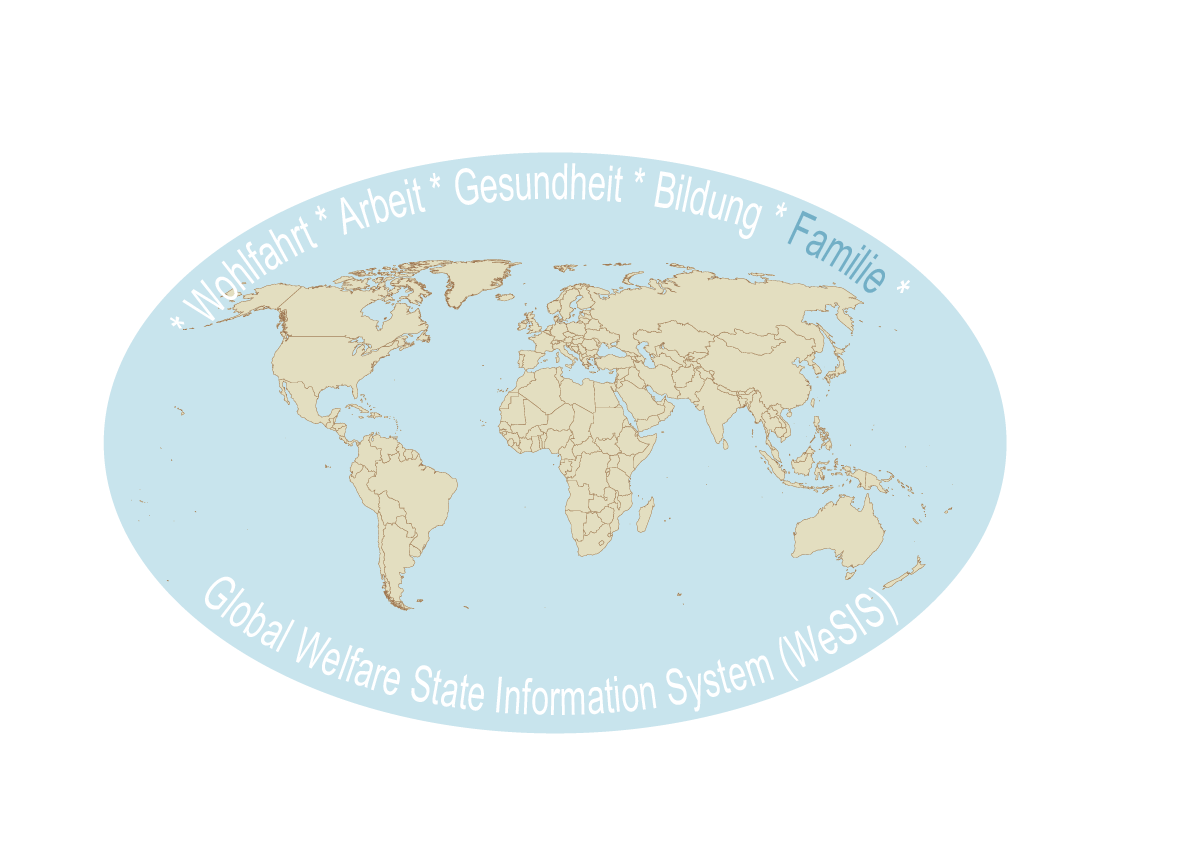Project A06 (2018-2021)
Formation and Diffusion of Family Policy in a Global Perspective
 Worldwide, the family is still largely responsible for biological and social "reproduction", and it is an important producer of welfare for human beings. Consequently, the state has a genuine interest in the family’s functionality. This interest is expressed in regulations contained in family law and in policies aimed at supporting families and their individual members. Viewed from a global perspective, however, the reach of such measures varies greatly, as do the guiding concepts of family, depending on the socioeconomic, political and cultural framework in individual countries. In addition to policies expressly targeting families ("explicit family policy"), more general social policies, for example those designed to alleviate poverty, can also be relevant to families if they improve the living conditions and capabilities of family members ("implicit family policy"). Family policy and social policy are therefore closely related.
Worldwide, the family is still largely responsible for biological and social "reproduction", and it is an important producer of welfare for human beings. Consequently, the state has a genuine interest in the family’s functionality. This interest is expressed in regulations contained in family law and in policies aimed at supporting families and their individual members. Viewed from a global perspective, however, the reach of such measures varies greatly, as do the guiding concepts of family, depending on the socioeconomic, political and cultural framework in individual countries. In addition to policies expressly targeting families ("explicit family policy"), more general social policies, for example those designed to alleviate poverty, can also be relevant to families if they improve the living conditions and capabilities of family members ("implicit family policy"). Family policy and social policy are therefore closely related.
Objective 1: Project A06 will first collect data on the development of national, explicit family policies as comprehensively as possible. Whereas data are largely available for the OECD countries, the relevant information on non-OECD countries must first be systematically collected and entered into the CRC’s central database WeSIS (The Global Welfare State Information System).
Objective 2: With recourse to historical changes in the political, socioeconomic and demographic frameworks, the changing role of the family as a producer of welfare, as well as changes in the dominant gender regime, the project will identify and document typical profiles of the dynamics of family policy in the countries studied. A distinction will be made between structural and cultural aspects of family policy frames.
Objective 3: The significance of international diffusion processes for the national dynamics of family policy will be investigated. A dual approach is taken: A first analytical strand will investigate whether and how the given national contexts promote or hinder the diffusion of family policy measures between states, and which role horizontal interdependencies between countries play in this process. A second analytical strand will investigate the role played by the activities of international organizations and internationally active non-governmental organizations as well as the standards and programmes they have introduced in the diffusion of family policy measures.
In the second phase of the CRC, the dimensions of generosity and degree of inclusion of family benefits will be investigated in greater depth. Furthermore, for a small number of selected countries in different regions of the non-OECD world with different cultural traditions, the dynamics of family policy will be examined with express consideration of international transmission.













